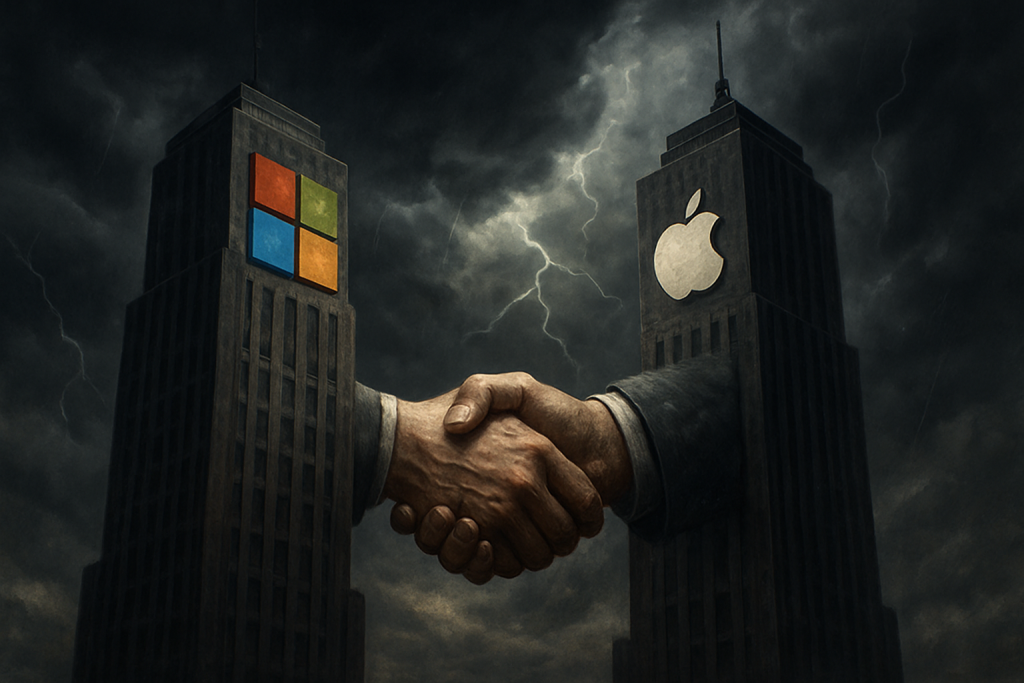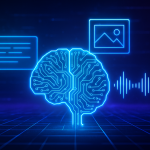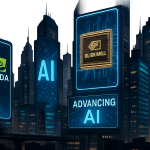In a move that’s sent ripples through Silicon Valley, OpenAI, the force behind the chatbot sensation ChatGPT, has officially inked a cloud computing deal with none other than Google. Yes, that Google. The one they’re ostensibly competing with in the AI arms race. It’s a plot twist worthy of a Christopher Nolan film, and it begs the question: in the high-stakes game of artificial intelligence, are rivals becoming reluctant allies?
For years, OpenAI has been practically synonymous with Microsoft, relying heavily on Azure for the immense computing power required to train its ever-evolving AI models. Think of it like this: Microsoft was Tony Stark’s lab, providing all the resources and infrastructure needed to build the Iron Man suit that is ChatGPT. But even Stark needed to upgrade his arc reactor eventually. And now, OpenAI is diversifying its energy sources in a major way.
Whispers of OpenAI exploring alternative cloud providers have been circulating for some time. We’ve heard rumors about partnerships with SoftBank, Oracle, and even specialized cloud providers like CoreWeave. There’s also the intriguing internal project, Stargate, aimed at building OpenAI’s own dedicated infrastructure, complete with custom-designed chips. It seems Sam Altman and his team are dead set on ensuring they aren’t beholden to any single vendor, a smart move considering the insatiable hunger of large language models for processing power.
But Google? That was the curveball nobody saw coming. The two tech giants are locked in a battle for AI supremacy, with ChatGPT challenging Google’s dominance in search and Bard nipping at ChatGPT’s heels. It’s like watching the Yankees and Red Sox suddenly decide to share a pitching coach. Unthinkable, right?
Decoding the Deal: Why This Partnership Makes (Strategic) Sense
So, what’s the method to this apparent madness? Let’s break down the implications for both parties, starting with OpenAI.
For OpenAI, access to Google’s cutting-edge Tensor Processing Units (TPUs) is the golden ticket. These chips are specifically designed for machine learning workloads and offer a compelling alternative to the GPUs traditionally used for AI training. Think of it as switching from a gas-guzzling Hummer to a high-performance electric sports car. OpenAI gets a significant boost in efficiency and performance, allowing them to train even more complex models, faster. This partnership could be the key to unlocking the next generation of AI, pushing the boundaries of what’s possible. It’s like giving Neo a red pill and a blue pill, just to see what happens.
And what does Google get out of it? Validation, for starters. This deal is a massive win for Google Cloud, demonstrating the competitiveness of its TPU chips and cloud services. It sends a clear message to the market: Google isn’t just playing catch-up in the AI race; it’s offering the infrastructure that powers the future. Furthermore, it’s a much-needed revenue stream for Google Cloud, which has been under pressure to demonstrate profitability. In essence, Google is selling shovels in the AI gold rush, and OpenAI is one of the biggest prospectors in town.
But beyond the immediate gains, there’s a deeper strategic layer at play. The AI landscape is evolving at breakneck speed, and the sheer scale of the challenge requires collaboration, even between rivals. Training these massive models requires astronomical amounts of computing power, and no single company can afford to go it alone. It’s becoming increasingly clear that the AI race isn’t a zero-sum game. Cooperation, at least on the infrastructure level, is essential for progress.
Market Reactions: Alphabet Soars, Microsoft Sags (Slightly)
The market’s reaction to the news was swift and telling. Alphabet’s stock price enjoyed a noticeable bump, reflecting investor confidence in Google’s cloud strategy and the validation of its AI infrastructure. Microsoft, on the other hand, saw a slight dip, perhaps signaling concerns about OpenAI’s diversification and the potential impact on Azure’s dominance.
However, it’s important to remember that Microsoft still holds a significant stake in OpenAI and remains its primary cloud provider. This deal isn’t about replacing Microsoft; it’s about augmenting OpenAI’s capabilities and mitigating risks. It’s like a superhero adding another weapon to their arsenal, not abandoning their trusty sidekick.
The Bigger Picture: Antitrust, Ethics, and the Future of AI
This partnership also raises some interesting questions about antitrust scrutiny. With AI becoming increasingly concentrated in the hands of a few powerful companies, regulators are watching closely. The collaboration between Google and OpenAI could raise concerns about market dominance and the potential for anti-competitive practices. It’s a delicate balancing act, as governments grapple with the need to foster innovation while preventing monopolies from stifling competition. Think of it as the Justice League trying to regulate Lex Luthor’s tech empire.
And then there are the ethical considerations. As AI becomes more powerful and pervasive, questions about bias, fairness, and accountability become even more pressing. Who is responsible when an AI makes a mistake? How do we ensure that AI is used for good and not for harm? These are complex questions that require careful thought and open discussion.
Ultimately, the OpenAI-Google partnership is a sign of the times. It reflects the immense computational demands of modern AI, the need for collaboration in a rapidly evolving landscape, and the growing importance of strategic partnerships. It’s a reminder that even in the most competitive industries, cooperation can be a powerful force. So, while Google and OpenAI may continue to battle it out for AI supremacy, they’re also working together to build the infrastructure that will shape the future. It’s a complex, fascinating, and slightly unsettling dynamic, and we’ll be watching closely as it unfolds. After all, in the world of AI, anything is possible. Even the unthinkable.
Discover more from Just Buzz
Subscribe to get the latest posts sent to your email.


